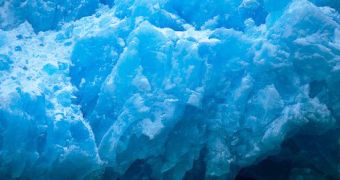Contrary to what most of us may believe, scientific studies indicate that Ice Ages are not a rare phenomenon occurring every now and then for more or less long periods of time. Instead, the interglacial periods, the short spells between long, freezing epochs, are the real intruders. In other words, the tiny geological period we are part of (called Holocene, Greek for “entirely new”), which started about 10,000 years ago (around 8000 BC), is just a small break from the icy domination.
Based on their studies (involving ancient materials that survived through the past ages, like oceanic sediments, or the impact of the Earth's orbit around the Sun), the experts were able to roughly calculate the extent of the previous interglacials. They have determined that these could range from 10,000 to 30,000 years in duration. Knowing this, scientists keep wondering when the next Ice Age begins and, of course, what is the impact of mankind on the natural cycle of the event.
Although there is never solid certainty towards such delicate and distant phenomena, most experts tend to agree that the next glaciation will reach a peak about 80,000 years from now and could start "any millennium now," according to Dr. Richard A. Muller, a physicist at the University of California, Berkeley. But, as one might expect, the influence of technology has become a major topic for the debates related to the subject. Thus, some specialists believe that the greenhouse gases and the subsequent global warming could deter the installment of the Ice Age according to the Earth's schedule for many millennia.
Others, though, are more confident in the planet's ways to address these matters and state that the human factor will affect too little the climate on the big picture scale in order to make such a difference. According to them, it's even possible that the global warming will cancel the heat-gathering oceanic currents that warm up the northern regions, which, in turn, may lead to an accelerated occurrence of the icy period.

 14 DAY TRIAL //
14 DAY TRIAL //